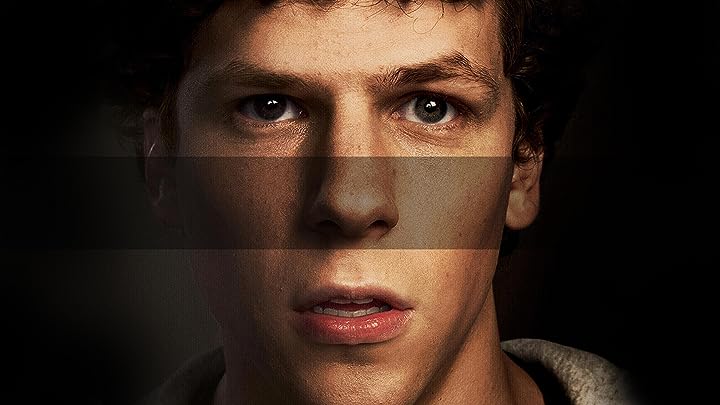David Fincher’s film, The Social Network, provides an alternative perspective on college-centric films that have dominated Hollywood portrayals. While many college movies focus on wild parties and casual relationships, The Social Network delves deeper into the world of brilliant minds, passion projects, academic competition, and ambitious start-ups. Through this movie, Fincher explores the story of Mark Zuckerberg, his creation of Facebook, and the legal battles that ensued. The Social Network offers a comprehensive and detailed view of college life, far beyond the stereotypical college experience depicted in mainstream media.
College-Centric Films: Breaking the Mold
Traditionally, college-centric films have centered around sorority houses, all-night parties, academic struggles, and romantic dramas. However, The Social Network challenges these stereotypes by highlighting the intellectual endeavors and serious pursuits that also define college life. The film captures the journey of brilliant students, brainstorming sessions, and passion projects, showcasing the infinite enthusiasm and academic competition prevalent in colleges. It sheds light on the world of inter-college collaboration, ambitious start-ups, and career-driven networking, painting a more realistic and thought-provoking picture of college experiences.
The Origins: A College-Centric Narrative
The Social Network portrays the origins of Facebook with a particular focus on college life. Mark Zuckerberg, played by Jesse Eisenberg, creates a website called “The Facebook” to rate women students after a breakup with his girlfriend. This seemingly trivial venture evolves into a groundbreaking social media platform. The film highlights key moments such as Eduardo Saverin’s equation on the dorm window, Sean Parker’s involvement in the later stages of development, and the legal proceedings involving the Winklevoss twins and Divya Narendra. These events shape the origin story of Facebook, intertwining it with the college experience.
Exploring College Life: Dorm Rooms, Brilliance, and Passion
The Social Network vividly portrays dorm rooms, computer labs, and hotel rooms filled with enthusiastic college students, each driven by varying degrees of passion, motivation, and intelligence. Aaron Sorkin’s meticulously developed fast-paced dialogue captures the essence of intense brainstorming sessions and the undying quest for the next life-changing invention. Fincher’s direction amplifies this excitement, immersing the audience in the thrill of witnessing brilliant minds working tirelessly to develop software that would revolutionize society.
Relationship Drama and Setting the Tone
The film opens with a breakup between Mark Zuckerberg and Erica Albright, played by Rooney Mara. This pivotal scene sets the tone for the entire narrative, foreshadowing the film’s honest portrayal of Mark’s character. The rapid-paced dialogue showcases Mark’s self-centeredness and desire for attention. As Mark rushes back to his dorm, the audience is introduced to the college campus through an engaging video collage accompanied by an Academy Award-winning score, immersing viewers in the college atmosphere.
Commentary on College Life: FaceMash, Frat Houses, and Entitlement
The Social Network adeptly comments on various aspects of college life. A notable example is the creation of FaceMash, which is depicted alongside scenes of debauchery at a fraternity house. This contrast serves as a social commentary, highlighting the importance placed on fraternity culture, egotistical attitudes among Ivy League students, and the normalized casual sexism prevalent in college settings. Rather than celebrating these aspects, the film presents them with discomfort and disapproval, accentuated by the fast-paced editing and obnoxious behavior displayed in those scenes.
A Different Perspective on Sports: Tyler and Cameron Winklevoss
Sports often play a prominent role in college-centric portrayals, typically focusing on jock culture and locker room dynamics. The Social Network offers a unique perspective through the characters of Tyler and Cameron Winklevoss, Olympic-level rowers who represent the healthier side of college sports. However, their privilege and entitlement are also explored, showcasing the extent of ego that often accompanies exceptional abilities and privileged backgrounds. The film sheds light on the toxic aspects of entitlement within the college sports scene.
Unveiling the Lesser-Seen Side: Studious Hard Work
The Social Network breaks away from the traditional portrayal of college as a non-stop party by highlighting the studious side of college life. While not the film’s primary focus, there are inspirational moments that capture the essence of hard work and dedication. Scenes of brainstorming sessions, such as the formula Eduardo Saverin writes on the dorm window, demonstrate the intellectual pursuits within the college environment. The film reveals that college offers more than just drinking and casual relationships; it showcases the passion and fun found in academic pursuits and meaningful collaboration.
Questioning Norms: Fraternities and Toxic Masculinity
The film also confronts normalized behaviors in college, particularly the practices and entitlement associated with fraternities. The movie’s unflinching portrayal exposes the disturbing rituals, the culture of bullying, and the toxic masculinity often associated with these organizations. The Social Network highlights the consequences of such behaviors and questions the prevalence of privilege and exclusivity within the fraternity system. By presenting these issues honestly, the film encourages viewers to question these norms and reevaluate their impact on college culture.
Neutral Commentary and Subtle Critiques
The Social Network discreetly comments on the depicted aspects of college life, maintaining a neutral stance while subtly critiquing harmful behaviors. The film presents counterpoints that challenge the endorsement of entitlement, rivalry, and toxic competitions. Through nuanced storytelling, it encourages viewers to scrutinize normalized practices and consider their impact on academic environments. The Social Network remains a thought-provoking piece of cinema, skillfully blending intrigue, motivation, caution, and genuine exploration of college experiences.
Conclusion
In conclusion, The Social Network offers a refreshing and comprehensive perspective on college life. It moves beyond the superficial portrayals often depicted in college-centric films, exploring into the intellectual pursuits, passionate collaborations, and hard work that define the college experience. The film balances admiration for brilliance and innovation with an honest critique of toxic behaviors and entitlement. Ultimately, The Social Network stands as an influential movie that both motivates and challenges viewers, leaving a lasting impression on aspiring minds.
FAQs
1. Is The Social Network based on a true story?
Yes, The Social Network is based on a true story.

